What are the characteristics of iron pickup coffee? what is the flavor? is it bitter?
Typica is recognized as an ancient and excellent variety in the coffee industry, and many famous coffee beans we are familiar with, such as Jamaica Blue Mountain Coffee, Sumatra Manning Coffee and Hawaii Kona Coffee, are famous for it. So what are the characteristics of the "old variety" of iron pickup?
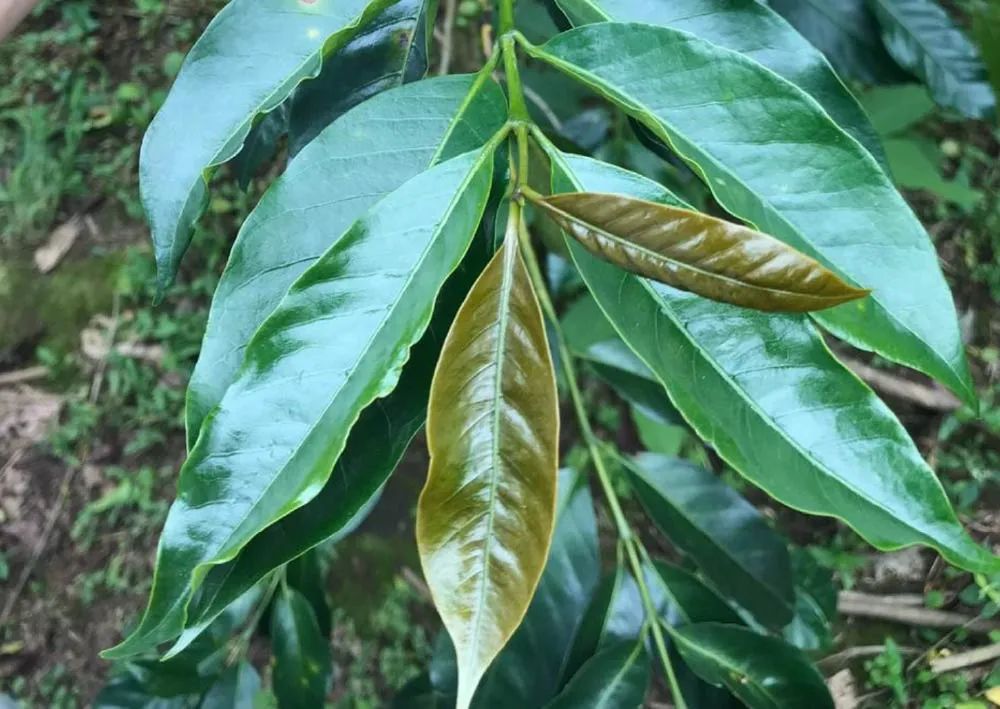
Characteristics of Iron pickup Coffee
The mellow-scented iron pickup, as a high-quality coffee variety, is still grown all over the world, the most famous being the Jamaican Blue Mountain Coffee. It is not easy to grow iron pickup coffee beans with elegant and pure flavor. Every link of congenital local conditions, plant management, fruit picking and post-processing must be fully guaranteed in order to develop a positive flavor and taste of coffee beans. This also means that the production of high-quality iron trucks requires more labor costs and research technology, so there is a reason why Blue Mountain Coffee and Kona Coffee are so expensive.
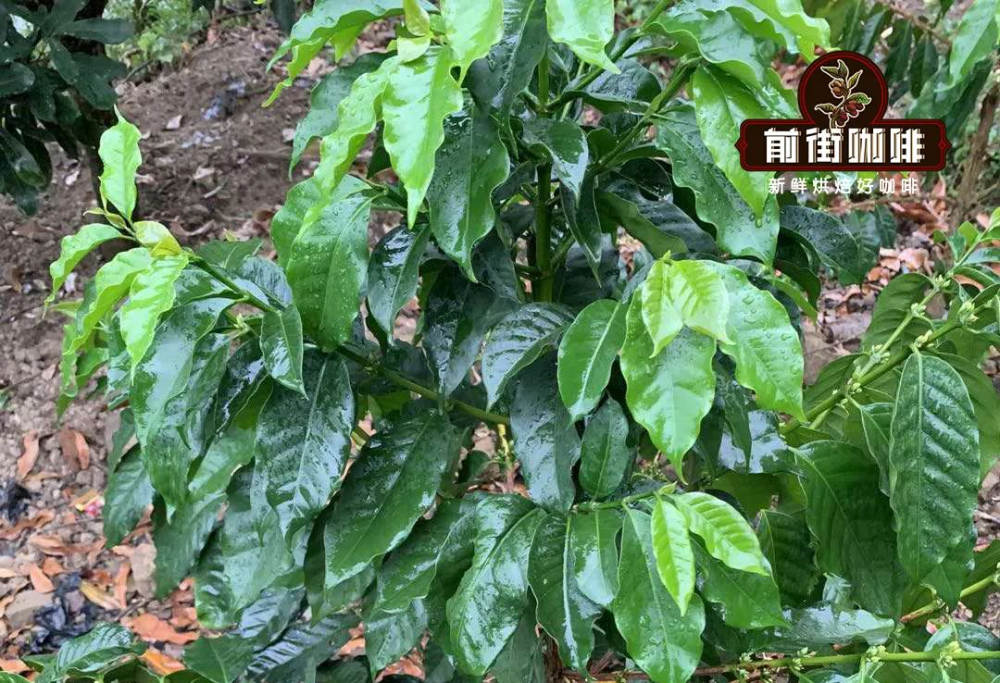
The biggest feature of the iron pickup variety is that the top leaves show a reddish bronze color, so it is also called "red top coffee". The tin card tree is conical, the branches are slightly inclined, and the lateral branches form an angle of 50-70 °with the vertical stem. Its trunk is thin and its branches are very thin. Because of its height and long branches, it is necessary to leave enough space between the plants when planting tin card trees. There is a tin card tree planted next to the Dongshankou store on Qianjie Street. You might as well pay attention to it.
The iron pickup coffee beans are large, long and pointed at both ends, a bit like an egg. Baked often with citrus sour taste, bitter taste is not obvious, with a sweet aftertaste, the overall cleanliness is high, praised by many people as elegant and clear flavor characteristics.
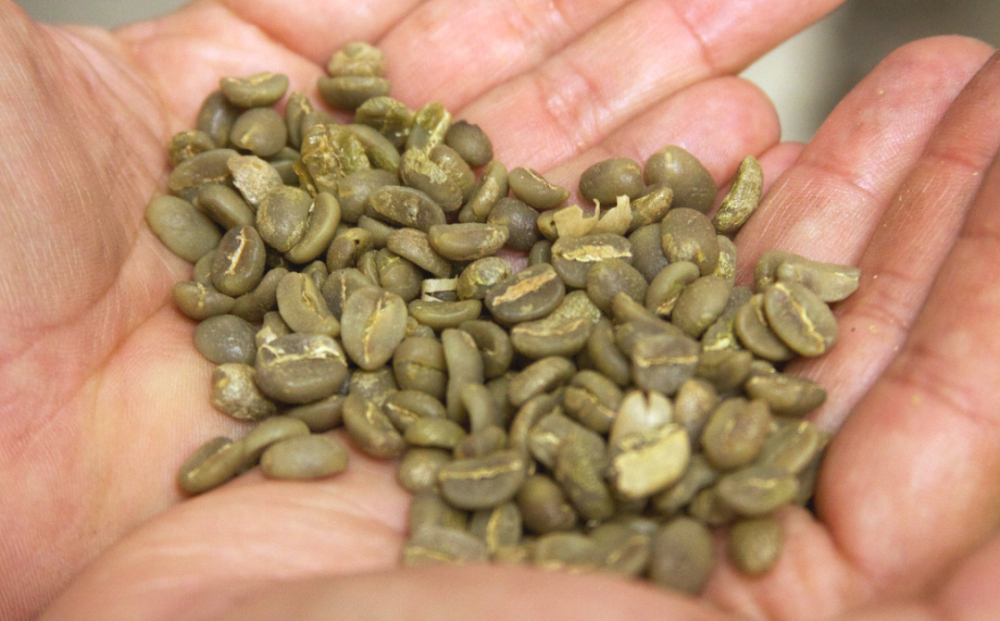
However, the disease resistance of iron pickup is very poor, it is difficult to resist leaf rust and fruit pulp disease. And so on the most common diseases, the yield is also very rare. Leaf rust is the most serious plant disease, which first appeared in the coffee producing area of Lake Victoria in East Africa in 1861. Since the outbreak of leaf rust in Bathia, Brazil, in 1970, cases of leaf rust have been found one by one in all coffee producing areas in the world. Coffee trees infected with leaf rust are tantamount to an incurable disease that eventually wilts or even dies. Coffee as a cash crop, low yield, weak and sickly tin card is also difficult to achieve the goal of profit, so many growers choose to give up and plant other varieties with better disease resistance.
There are three kinds of tin cards on the daily bean list on Qianjie: Jamaica Blue Mountain No. 1 Coffee beans, Qianjie 2013 Sun Iron pickup Coffee beans, Papua New Guinea Paradise Bird Coffee beans. When planted in different soil conditions and treated with different methods, the tin card will show different flavor and taste.
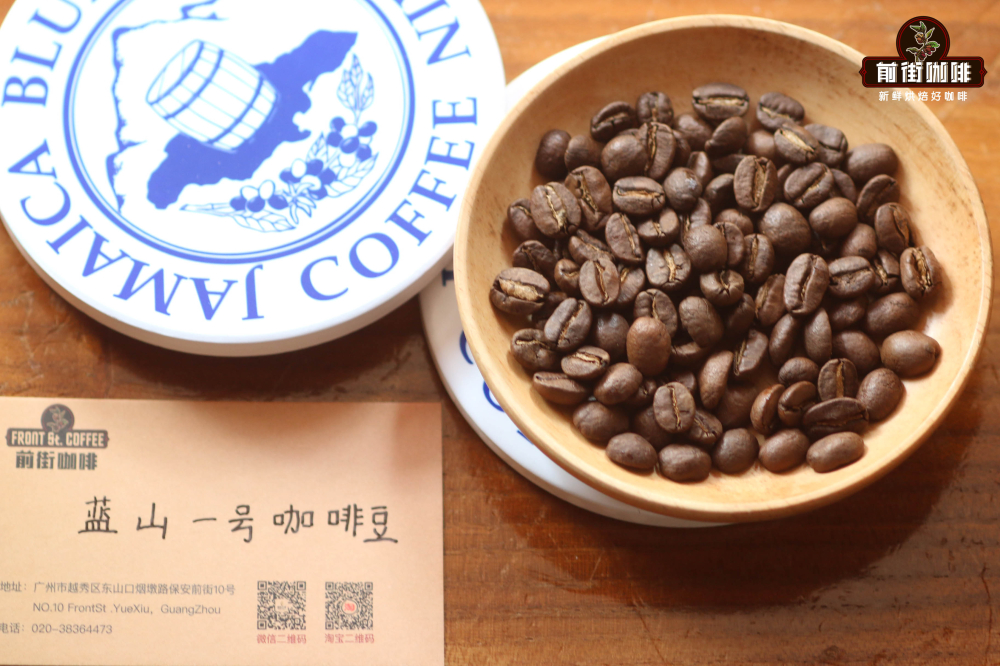
Jamaica Blue Mountain one Coffee Bean
Of course, the high quality of Blue Mountain Coffee is inseparable from the advantages of the planting environment. Blue Mountain in the Blue Mountains is surrounded by the water of the Caribbean Sea, which belongs to the unique island-type tropical rain forest microclimate, with concentrated rainfall and good drainage in the rainy season. The ash from active volcanoes makes the soil rich in nutrients, so coffee trees don't need too much irrigation and fertilization. The sunny, misty, cool and comfortable high-altitude planting area is very suitable for the growth of all kinds of crops. Local people usually plant coffee trees and banana trees on the slopes of the Blue Mountains.
CIB has designated an area of about 6000 hectares in the Blue Mountains, and it is strictly stipulated that only the iron pickup coffee produced in this area can be called "Blue Mountain Coffee". According to the area divided by CIB, the forest area for growing Blue Mountain Coffee is located at an altitude of 910 to 1700m. High altitude and the right climate characteristics make the coffee fruit absorb essence and transform into various aromatic substances. The higher the altitude is, the more prominent the flavor of iron pickup is.
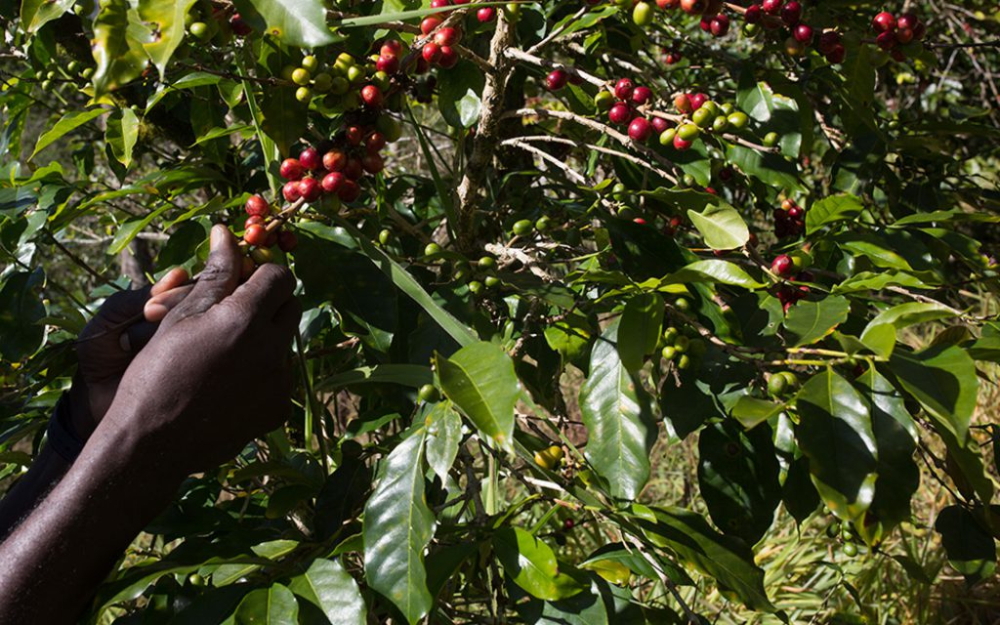
However, the iron pickup has poor disease resistance, is very easy to catch the disease, and the fruit yield of a single plant is low, so it needs more manpower to take good care of it. In addition, the terrain at the high elevation of the Blue Mountains is uneven, and it is very difficult to manage and pick, so there is a high demand for the proficiency of the harvester, which further affects the yield. In recent years, less than 15% of the coffee beans produced in Jamaica can be labeled as Blue Mountain Coffee, about 900 tons. The fresh fruit of the picked coffee will be immediately transported to the processing plant for processing, and the peel and flesh of the coffee will be removed by washing and dried.
Qianjie received the raw beans of Jamaica Blue Mountain No. 1 coffee, the particles were uniform and plump, the size was uniform, and the whole was bright turquoise. The front street uses medium-depth baking to maximize the aromas of chocolate and nuts in the Blue Mountains, while retaining soft acidity and sweetness to balance the overall taste. The freshly roasted blue mountain coffee beans were tested immediately in Qianjie. The dried aromas included nuts, melons and chocolates. After injecting hot water, they smelled oolong tea, caramel, honey and dark chocolate. Taste is rich dark chocolate, baked hazelnut, cream, black sugar, clean and clear flavor, mellow taste, long-lasting aroma.
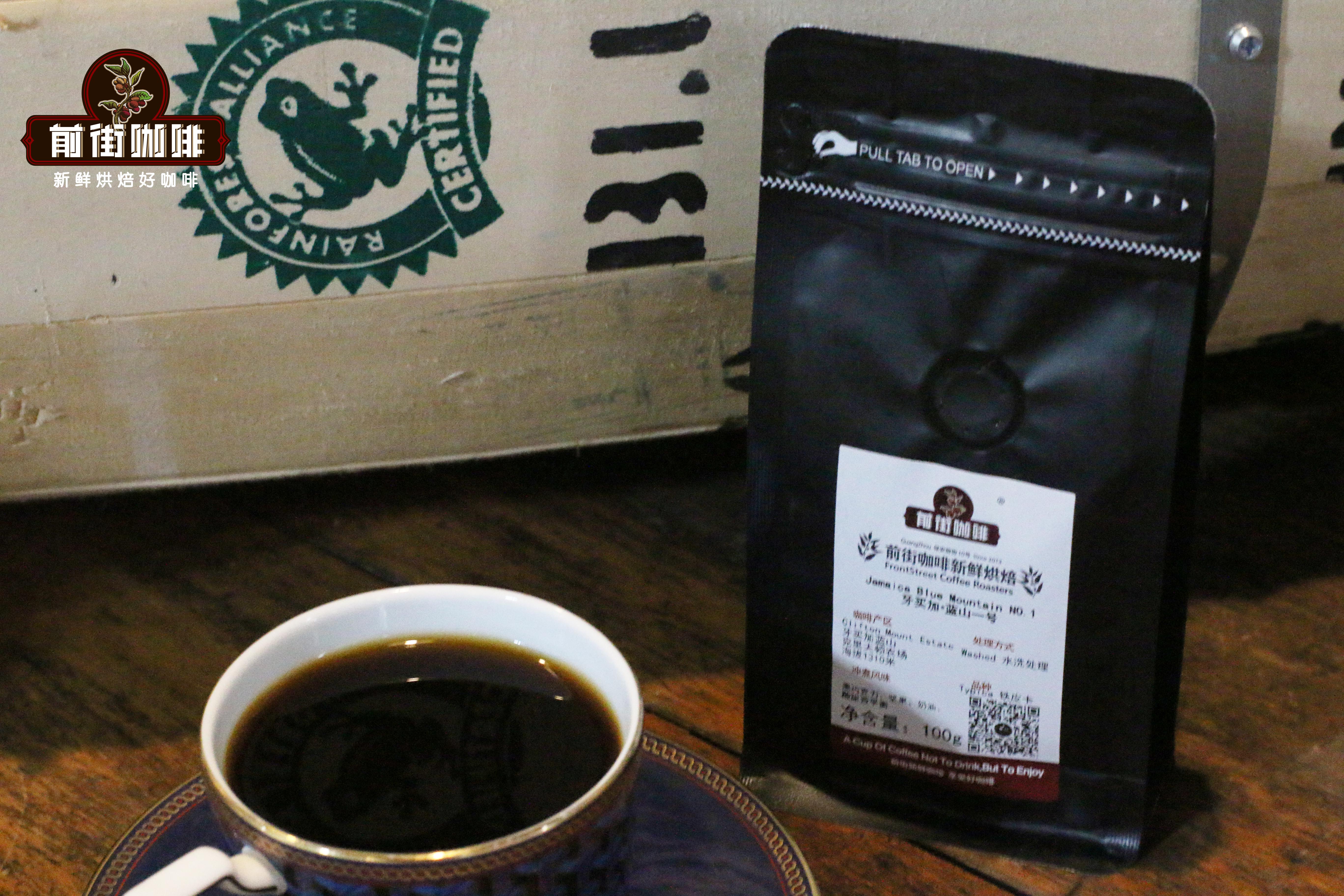
Yunnan Sun Iron pickup Coffee beans
The original varieties of coffee grown in Yunnan were the ancient iron pickup and bourbon. Later, Yunnan coffee was affected by global leaf rust, resulting in large-scale death of coffee trees and a substantial reduction in planting area. Later, with the support of major foreign enterprises, Katim, a variety with high yield and disease resistance, was introduced. This has also established the Katim variety to replace the ancient tree species of iron pickup and become the main variety of coffee in Yunnan today. Because the yield of Tieka coffee bean is low, it is easy to get sick, and the cost of management and protection is high, which means that growers need to explore for a longer time, which is why most Yunnan farmers are reluctant to grow it.
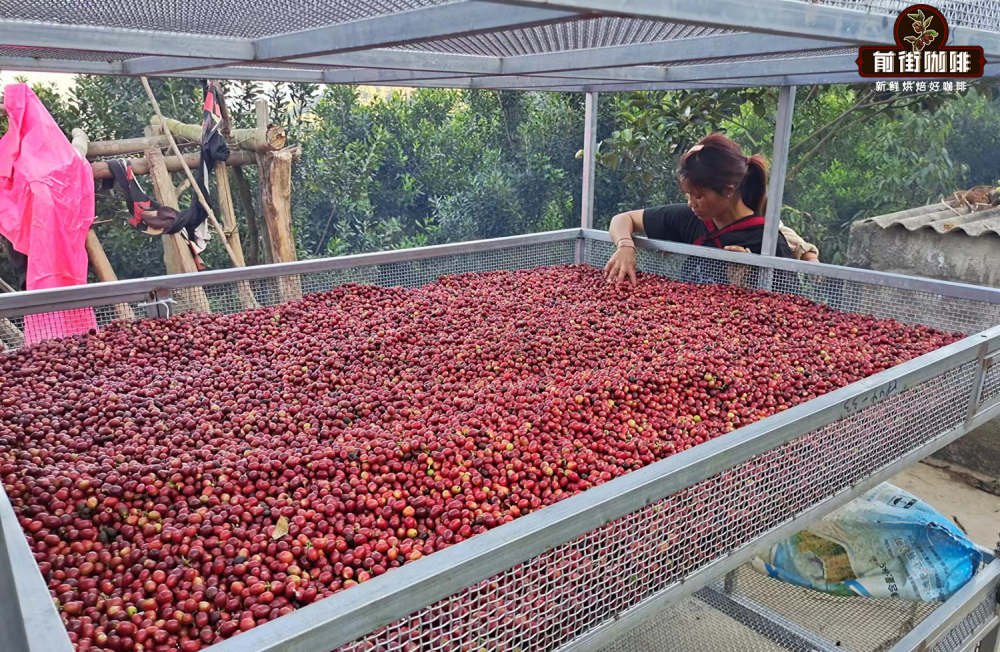
Affected by the warm and humid air flow in the Indian Ocean and the southwest monsoon, Lincang, Yunnan is not obviously divided into four seasons, but the dry and rainy season is distinct, Rain Water is more, the sunshine time is long, the frost period is short, some areas are frost-free all the year round, and the three-dimensional climate is obvious, which is very suitable for Arabica coffee growth. so Qianjie specially chose the most primitive iron truck. However, the delicate tin card is also famous for its low yield and poor resistance, so Qianjie has made a lot of efforts in planting management. After 5 or 6 years of cultivation, the first batch of results were finally harvested in the street before 2013, and produced by natural drying in the sun, also named "Qianjie 2020".
In the front street, you can only find Yunnan coffee beans in two ways: washing and tanning. This iron card coffee in front of the street chooses sun treatment. Sun treatment does not need too much equipment, mainly continuous uniform drying in the sunny day. Coffee fresh fruit should be treated immediately after picking, first screening, flotation is one of the commonly used screening methods, the screened coffee fruit will be dried in the sun. In front of the street, personnel will be arranged to turn regularly to avoid uneven heating of coffee fruits, resulting in excessive fermentation. When the coffee fruit is dehydrated from bright red to dark purple, reaching the target moisture content, it can be sent to shelling and roasting. The tanned tin card shows a fuller fermented flavor than water washing treatment, with outstanding sweetness, with aromas of caramel, berries and black tea.
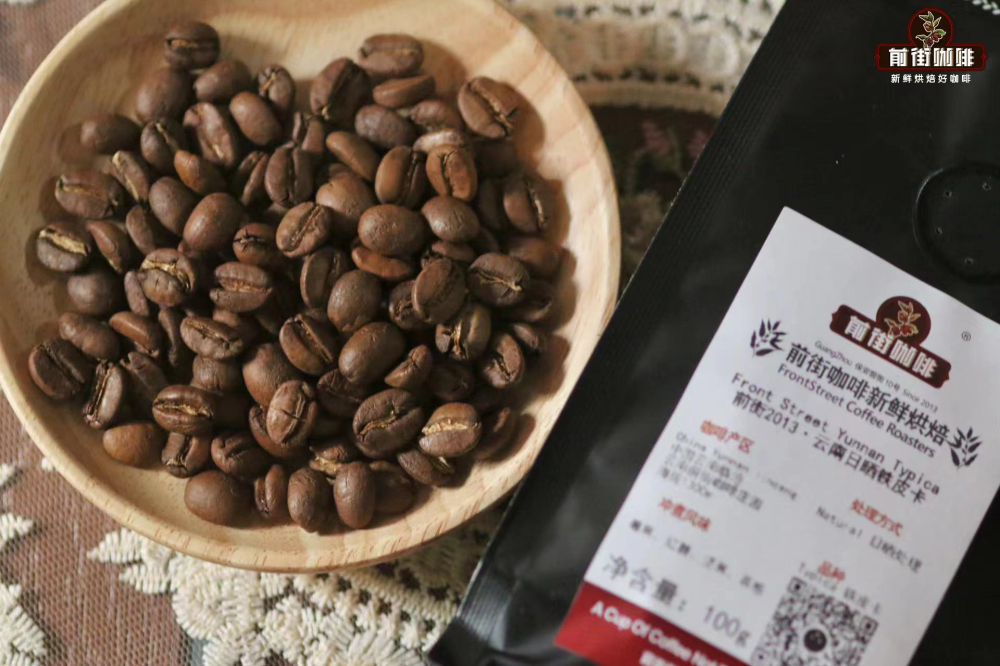
Papua New Guinea Paradise Bird Coffee beans
Papua New Guinea is located in Oceania, neighboring Indonesia, a famous coffee producing region. In 1920, Papua imported iron pickup coffee seeds from the Blue Mountains of Jamaica and officially began to grow them commercially. Sitting in the circum-Pacific volcanic belt, it belongs to volcanic geology, rich in fertile volcanic soil, high-altitude mountain climate and low-altitude tropical rain forest climate, creating a good environment for brewing coffee.
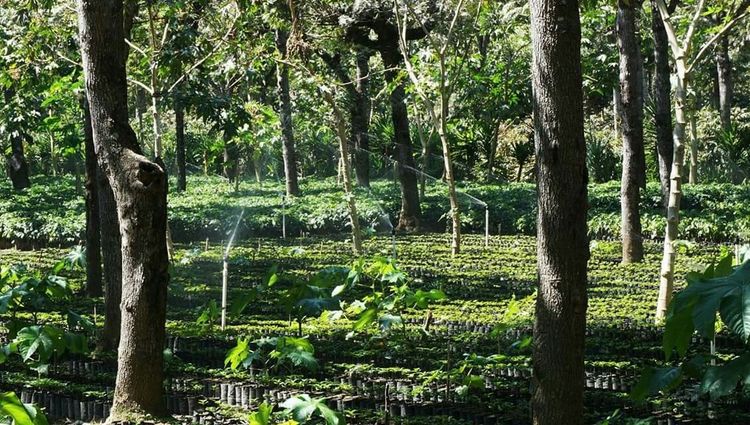
The Qianjie Paradise Bird Coffee beans, produced by SIGRI Paradise Bird Manor, are washed and named after the national bird of Papua. Located in the Waghi Valley Valley in the western highlands, Paradise Bird Manor has mineral-rich volcanic soil, cool climate, fertile soil and abundant rainfall, and coffee is grown with organic fertilizer. The high standard of planting and production gives the iron pickup coffee here a cleaner tonality. Bird of Paradise is known as the "Little Blue Mountain" for its soft, low-sour taste and balanced flavor.
Through the test and comparison in the front street, Paradise Bird Coffee beans are somewhat close to the balanced sweet and sour taste of Jamaican Blue Mountain coffee, with a hint of spice, sweet and sweet reminiscent of sugar cane, and the flavor of baked bread and nuts is very obvious.
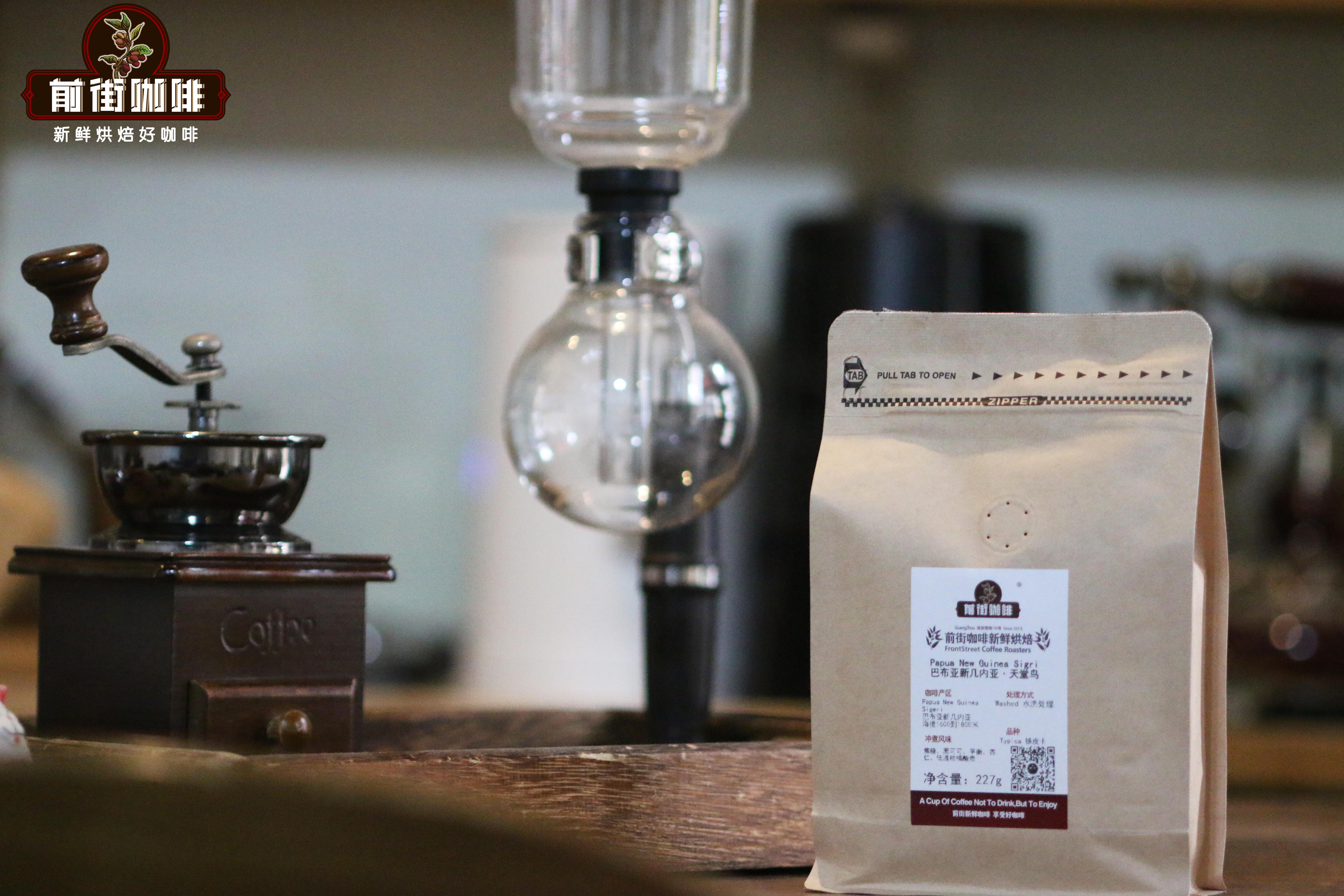
Professional coffee knowledge exchange more coffee bean information please follow the coffee workshop (Wechat official account cafe_style)
For more boutique coffee beans, please add private Qianjie coffee on Wechat. WeChat account: qjcoffeex
Important Notice :
前街咖啡 FrontStreet Coffee has moved to new addredd:
FrontStreet Coffee Address: 315,Donghua East Road,GuangZhou
Tel:020 38364473
- Prev
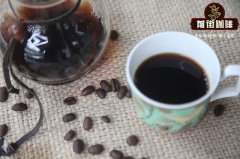
Which coffee brand tastes better? how to drink coffee beans? the real flavor of coffee beans.
Professional coffee knowledge exchange more coffee bean information please follow the coffee workshop (Wechat official account cafe_style) what is the ● coffee? Individual coffee is made from a single coffee bean produced in the country of origin, and it is a pure coffee with no milk or sugar when drinking. It has strong characteristics. People who like to drink coffee are generally fascinated by individual coffee. Because I
- Next
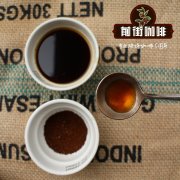
Starbucks Brazil Coffee-IP Manor | Starbucks Coffee Type | Starbucks individual Coffee
Professional coffee knowledge exchange more coffee bean information please follow the coffee workshop (Wechat official account cafe_style) Brazilian coffee, the world's largest coffee producer and leader of the world's boutique coffee now, boutique coffee is changing faster and faster. In order to adapt to the change, in addition to bakers and baristas, coffee farmers at the source also need to try new ideas.
Related
- Detailed explanation of Jadeite planting Land in Panamanian Jadeite Manor introduction to the grading system of Jadeite competitive bidding, Red bid, Green bid and Rose Summer
- Story of Coffee planting in Brenka region of Costa Rica Stonehenge Manor anaerobic heavy honey treatment of flavor mouth
- What's on the barrel of Blue Mountain Coffee beans?
- Can American coffee also pull flowers? How to use hot American style to pull out a good-looking pattern?
- Can you make a cold extract with coffee beans? What is the right proportion for cold-extracted coffee formula?
- Indonesian PWN Gold Mandrine Coffee Origin Features Flavor How to Chong? Mandolin coffee is American.
- A brief introduction to the flavor characteristics of Brazilian yellow bourbon coffee beans
- What is the effect of different water quality on the flavor of cold-extracted coffee? What kind of water is best for brewing coffee?
- Why do you think of Rose Summer whenever you mention Panamanian coffee?
- Introduction to the characteristics of authentic blue mountain coffee bean producing areas? What is the CIB Coffee Authority in Jamaica?

